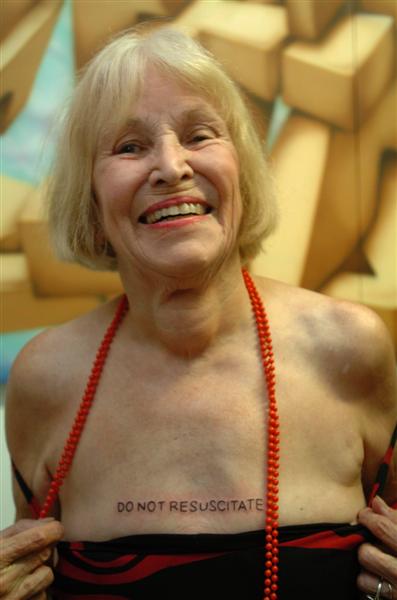Death In Space
Mary Roach, Boing Boing (September 02, 2010)
Wherever living humans go, the possibility of dead human bodies follows. It is the fullest expression of mortality’s inherent fragility.
So, when humans finally travel into space for extended periods of time without the luxury of a quickish return to Earth, dead body contingencies need to be thought through.This is especially true for any eventual trips to Mars, which may or may not involve establishing colonies.
Here’s the rub: NASA does not appear to have plans on what to do if an astronaut dies during a mission. Or the plans, if they exist, are not available to the public. I came across some news articles on this apparent planning gap, and it appears that NASA planners haven’t really taken seriously the possibility of an astronaut’s death during an extended voyage or what to do with a dead body during a mission.
This is not a minor point. Returning the dead body and its remnants to next of kin is standard procedure for US governmental operations; NASA space missions are no different. Yet during long or arduous expeditions dead bodies are often left behind, if for any reason, bringing the corpse back is too difficult and/or actually endangers fellow team members. Climbers who die on Mt. Everest are routinely left behind where they fall, not out of malice but out of necessity.
Enter into all of this, then, Mary Roach. Many of you will know Roach from her books Stiff, Spook, and Boink. She has also just written a new book entitled Packing for Mars, on exploring the red planet. Earlier this month, she wrote a short piece for Boing Boing about death in space and what might be done with a dead body. Oddly, Mary Roach’s work has popped up in a few different places the last few weeks.
Here is the lead from Mary Roach’s essay for Boing Boing:
The U.S. has plans for a manned visit to Mars by the mid-2030s. The ESA and Russia have sketched out a similar joint mission, and it is claimed that China’s space program has the same objective. Apart from their destination, all these plans share something in common: extraordinary danger for the explorers. What happens if someone dies out there, months away from Earth?
Roach discusses a plan developed by the Swedish environmentalist/burial innovator Susanne Wiigh-Mäsak and collaborator Peter Mäsak. Many readers of Stiff will remember Susanne Wiigh-Mäsak and her innovation called Promession. In a nutshell, the proposed system would reduce the dead body’s size and volume, thereby making it simpler to transport back to Earth. The full proposal (which is being developed with NASA) should be read to fully glean how this system would work.
What Wiigh-Mäsak and NASA are proposing is fine…but leaving the body in space would still be simpler. Indeed, the main reason to keep a body on hand after death would be for a postmortem examination to determine the Cause of Death and to see if the other astronauts were at risk for some previously unknown pathogen. That said, if an autopsy is not possible because of weaker gravitational pull and/or after a successful postmortem exam takes place, then the body is best given a respectful burial in space. I would rather see NASA develop plans for final disposition in space than a spaceship’s crew trying to make room for a dead colleague.
Besides, I have a hunch that any person who dies in space will probably want to stay in the ether.
Per usual, science fiction has already offered up one example of what a proper burial in outer space could resemble (see the vid at top).

 ave been intrigued for some time by the arguments Kurzweil and others make, especially when it comes to lifespan. A number of Singularity believers talk about 700 year lifespans and/or the outright elimination of death. I don’t ever discount these ideas out of hand. It is truly impossible to predict where human biology will end up fifty or one hundred years from now. So, I actually think that eliminating death or greatly expanding lifespan might be possible.
ave been intrigued for some time by the arguments Kurzweil and others make, especially when it comes to lifespan. A number of Singularity believers talk about 700 year lifespans and/or the outright elimination of death. I don’t ever discount these ideas out of hand. It is truly impossible to predict where human biology will end up fifty or one hundred years from now. So, I actually think that eliminating death or greatly expanding lifespan might be possible.


